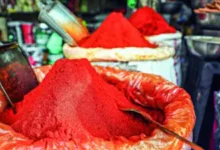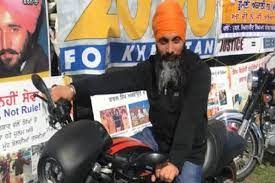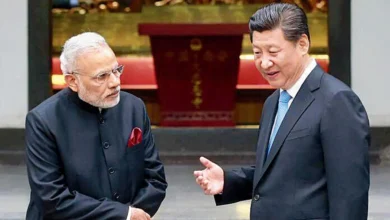“Political Earthquake” upends Vietnam’s struggle for succession
Although Vietnam does not have divisive elections like many democratic countries, it does have harsh internal power battles, as seen by the removal of a second president in less than a year.
53-year-old President Vo Van Thuong was a rising star in the Communist Party, a possible heir apparent to ailing 79-year-old Party boss Nguyen Phu Trong, as well as an ally. Instead, Thuong’s departure on Wednesday creates a leadership void in one of Asia’s fastest-growing economies, with a party statement ambiguously claiming he “violated regulations on what party members cannot do.”
“It’s another seismic event related to politics in Vietnam,” said Nguyen Khac Giang, a visiting fellow at the ISEAS-Yusof Ishak Institute in Singapore. “It’s not exactly encouraging for a nation that frequently takes pride in its strong political stability.”

Important Speakers At the CEO Summit of the Asia-Pacific Economic Cooperation
Thuong’s resignation was formally accepted by the National Assembly on Thursday, local media reported. Although the role of president in Vietnam is primarily ceremonial and the unrest shouldn’t harm the nation’s economic prospects, analysts say the upheaval signals a new stage of political unpredictability in the Communist Party’s five decades in power, especially as different groups compete to succeed Trong, who has been the country’s leader for the longest period of time since the end of the war.
Vietnam, a socialist country with a tendency towards capitalism, has profited from a surge in foreign investment as large companies, notably important suppliers to Apple Inc., want to diversify their supply chains away from China. A Bloomberg poll projects that the economy will grow 6.9% in the first quarter compared to the same period last year.
Investors may seek refuge elsewhere in a frontier economy such as Vietnam, but given the country’s consensus-driven structure, several experts expressed optimism in the wake of recent events. Investor impressions of Vietnam have not changed much over the last several months, despite months of power struggles behind closed doors.
“This does not alter my optimistic assessment of Vietnam’s future economic prospects,” said Asia Frontier Capital Ltd. fund manager Ruchir Desai, who is headquartered in Hong Kong. “I do not see such political changes rocking the boat because the country is the main beneficiary in Asia from the global supply chain shift and the government realises that exports, the manufacturing sector, and overall economic development are its long-term priorities.”
Prior to retreating from its early gains, the benchmark VN Index of Vietnamese equities increased by as much as 1% on Thursday. The value of the money hardly moved, staying close to a record low.
According to Nguyen Anh Duc, head of institutional sales at SSI Securities Corp., “investors anticipate there will be no change in terms of the market outlook” since the president’s role is not particularly tied to the economy.
However, there is no denying that the current corruption investigations, which Trong has defended as a crucial “burning furnace,” have severely damaged the country’s leadership. Furthermore, when the gloves take off in a power struggle inside the Communist Party, more senior leaders may potentially fall. None of them has been able to unify authority in a manner like that of Chinese President Xi Jinping across the border.
Four Politburo members, two deputy prime ministers, two ministries, and more than a dozen provincial officials have been apprehended by Vietnam’s anti-graft campaign since 2021. The head of a province that produces coffee was arrested by authorities in January on charges of misusing his authority and position. Three top provincial officials were detained by the authorities earlier this month on suspicion of accepting bribes from the real estate firms Thang Long Property Co. and Phuc Son Group.
Possible applicant
Although the exact reasons for Thuong’s departure are yet unknown, officials declared his resignation and the expulsion of a party Central Committee member for breaking rules. This member was detained at the beginning of the month on suspicion of accepting bribes connected to the Phuc Son Group.
The 66-year-old Minister of Public Security To Lam, who has been spearheading Trong’s anti-corruption effort, was leading that case and is seen by some observers as the early front-runner to succeed Thuong. When the presidency was last up for grabs a year ago, Lam was floated as a potential favourite.
According to Linh Nguyen, chief analyst for Vietnam at Control Risks, “I doubt that when the general secretary started it around 2016, he could have foreseen it would lead to so many senior politicians being punished like this.” “I feel like he’s losing control by giving the Ministry of Public Security and the anti-corruption committee more authority.”
Golden steak
However, there has also been debate around Lam. In 2021, he gained notoriety after a video of Turkish chef Nusret Gokce, also referred to as Salt Bae, showing him a steak covered in gold leaf at a London restaurant surfaced. Many in Vietnam were shocked by the video, wondering how a high-ranking official could afford ostentatious dinners amid a pandemic-heavy anti-corruption drive.
Giang from Singapore’s ISEAS-Yusof Ishak Institute said that Lam could be content to continue in his present position. “In Vietnamese politics, the minister of public security holds a higher rank than the president, but the minister’s position actually holds the real power,” the speaker said.
Nevertheless, the president is also seen as a potential stepping stone to Trong’s position as party chairman. Prime Minister Pham Minh Chinh, one of the other front-runners for the top position, has been trying to hold onto his position after the removal of two of his deputies from office last year.
Vice President Vo Thi Anh Xuan will serve as an interim candidate until the National Assembly formally accepts Thuong’s resignation on Thursday. The party’s Central Committee, which now has 160 members, will convene once again for an extraordinary meeting to choose a new candidate. The decision would then need the National Assembly’s approval. It might take many months to complete, like it did in 2023.
The next president may provide some insight into who might someday hold the nation’s most important position. In any case, it seems that the party’s internal strife is just beginning.
According to Carl Thayer, an emeritus professor at the University of New South Wales in Australia, “the original 18-member Politburo has been much reduced.” “At the next party national congress, it will be the last man standing.”







